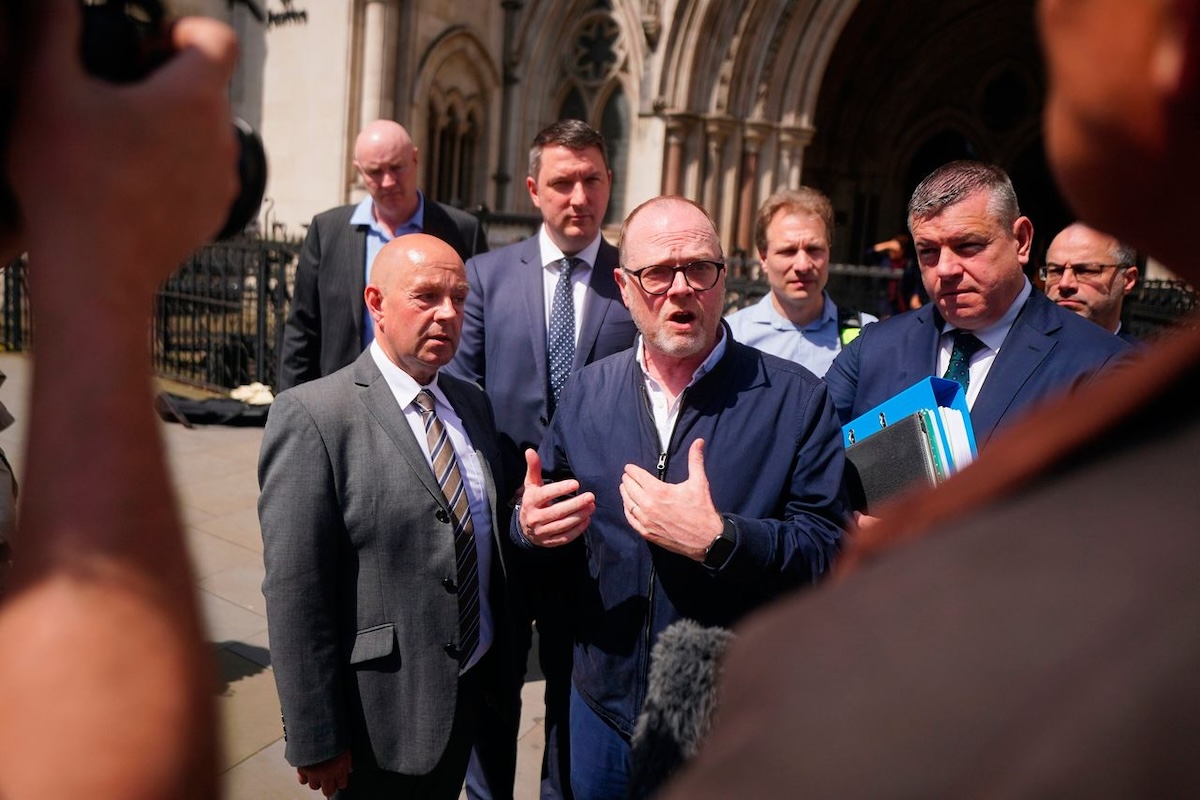
The PSNI police carries out ‘industrial scale’ spying on journalists in the North of Ireland by trawling their phone data to see who they are in contact with, it has emerged.
A High Court hearing has been told of surveillance tactics taking place every six months as part of “defensive operations” by the PSNI to prevent “troublemaker” journalists receiving information which might reveal details of the force’s collusion in sectarian killings and cover-ups.
Details of what was described as ‘Orwellian’ PSNI spying tactics on reporters emerged at a sitting of the Investigatory Powers Tribunal (IPT) in London, a body with powers to investigate complaints of state surveillance.
It has been examining allegations that two investigative reporters in the north of Ireland were subject to “unlawful covert intelligence” by the Crown Forces.
Evidence presented to the tribunal on Wednesday indicated the routine spying extended to at least eight Irish reporters, including the two targets already identified.
In 2018, investigative documentary makers Barry McCaffrey and Trevor Birney were infamously arrested as part of a PSNI investigation into the alleged leaking of a confidential document that appeared in a film they made on the Loughinisland massacre, in which collusion is alleged.
The PSNI later unreservedly apologised for how the men had been treated and agreed to pay damages to the journalists and the film company behind the documentary.
In 2019, Mr Birney and Mr McCaffrey lodged a complaint with the tribunal asking it to establish whether there had been any unlawful surveillance of them.
Last week, 600 pages of new evidence were disclosed to the body ahead of a substantive hearing scheduled for October.
Those papers included a Durham police minute of a meeting between the senior investigating officer and two PSNI figures working in intelligence operations.
Mr McCaffrey’s counsel Ben Jaffey revealed that the note made detailed reference to the PSNI’s operations against journalists in the North, including a trawl of phone records to look for a number used by police.
“It appears to disclose the existence of what the PSNI call a defensive operation involving the cross-referencing of billing with police telephone numbers on a six-monthly basis of what appear to be a group of Northern Irish journalists who have written unobliging things about the PSNI,” he told the tribunal.
The barrister said the document indicated the operation was definitely in place in 2017.
But he added: “We don’t know when it started and we don’t know when it’s finished and we don’t know what it involves.”
Mr Jaffey said the PSNI had yet to offer a response.
“But if this is what has been going on, we obviously say it’s unlawful to go and take a list of troublemaker journalists, get their billing every six months and cross-reference it with a list of police telephone numbers, and see if those journalists have got any new police sources is plainly unlawful.
“A ‘defensive operation’ can only be what we say is a slightly Orwellian euphemism.”
Surveillance against Mr McCaffrey appears to have taken place since 2011.
Mr Jaffey said the fresh evidence disclosed to the tribunal suggested he could have been subjected to a very large number of spying bids.
“I think I made a cheap joke last time around that I’d lost count of the number of times that Mr McCaffrey has had his communications data obtained,” he said.
“That’s no longer really, unfortunately, a joke.”
The barrister said the documents freshly disclosed also raised a series of other incidents of concern, including: an attempt by police to access data from Mr Birney’s wife; a plan to access his lawyer Niall Murphy’s personal data; an attempt to secure international intelligence on Mr McCaffrey in relation to a trip he and Mr Birney had taken to France in 2016.
The BBC has joined the tribunal case amid evidence one of its former investigative reporters, Vincent Kearney, was spied on by the PSNI and by police in London who were alarmed by a 2011 Spotlight documentary that probed the independence of the Police Ombudsman’s office.
Outside the Royal Courts of Justice after the sitting adjourned, Mr Birney said the hearing made clear that the PSNI was “absolutely obsessed with journalists and their sources”.
“And I think we need to remind the PSNI and remind the authorities back in Belfast that journalism isn’t a crime, that journalists all over the world have sources and that is lawful and that is absolutely what journalists are there to do,” he added.
“But what we’ve heard this morning is incredibly worrying about the industrial harvesting of journalists’ phone data and I think that that is something that we really need to find out more about and we need to find out quickly.
Mr McCaffrey added: “The dark arts were supposed to be gone after the Good Friday Agreement, it seems that they’re still here and they’re thriving and they seem to be in charge, that can’t be allowed to go on.”
![[Irish Republican News]](https://republican-news.org/graphics/title_gifs/rn.gif)
![[Irish Republican News]](https://republican-news.org/graphics/title_gifs/harp.gif)

